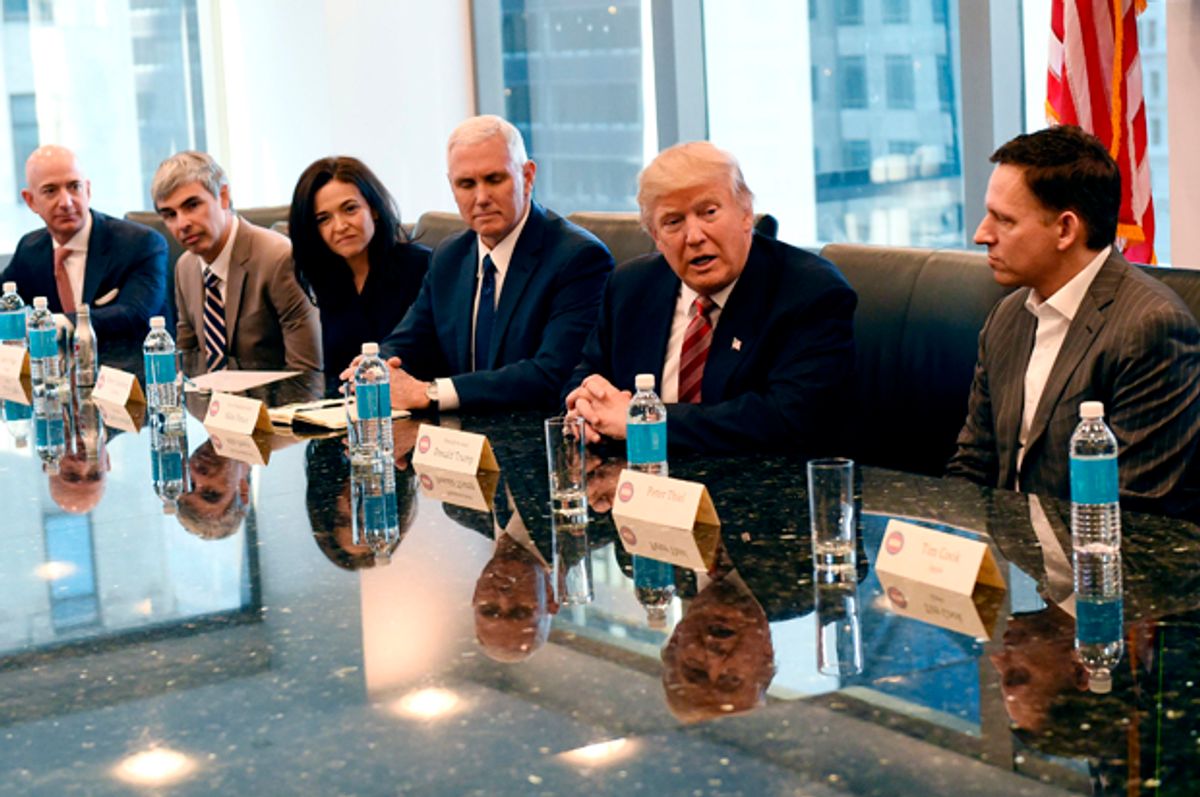President Donald Trump's ban on Muslim immigration may have been met with protests from some powerful Silicon Valley executives, but by and large the CEO community is too scared to speak out against it — even if they also think it's wrong.
"I had similar conversations with executives over the weekend, all of whom . . . seemed to be upset about at least the implementation of this program," said CNBC's Andrew Ross Sorkin on Monday. "They are scared out of their minds about being attacked . . . and what that's going to do for their business."
Gillian Tett of the Financial Times had a similar observation. "The danger is twofold: firstly, the fact that you've got a president who will tweet out statements that can be very damaging to the share price," Tett said. "But secondly, of course, you've got a lot of people who agree with what he's doing and who will take revenge against companies whether that's on social media or [via] boycott."
One CEO who has been willing to speak out against the Muslim travel ban is a man working for a bank that Trump has mined to staff his administration — Goldman Sachs CEO Lloyd Blankfein.
"The president has issued an executive order that, generally, bans individuals from seven different countries from entering the United States and freezes the broader refugee program," Blankfein said in a voice message left to his employees on Sunday. "This is not a policy we support, and I would note that it has already been challenged in federal court, and some of the order has been enjoined at least temporarily."
At the end Blankfein added, "Let me close by quoting from our business principles: 'For us to be successful, our men and women must reflect the diversity of the communities and cultures in which we operate. That means we must attract, retain and motivate people from many backgrounds and perspectives. Being diverse is not optional; it is what we must be.' Now is a fitting time to reflect on those words and the principles that underlie them."
Similarly, the State Department is reported to be circulating a "dissent channel cable," signed by both mid-level and high-level officials, that criticizes the ban on the grounds that it "does not achieve its aims and will likely be counterproductive" in the fight against terrorism and that it will "immediately sour relations with these seven countries, as well as much of the Muslim world."



Shares